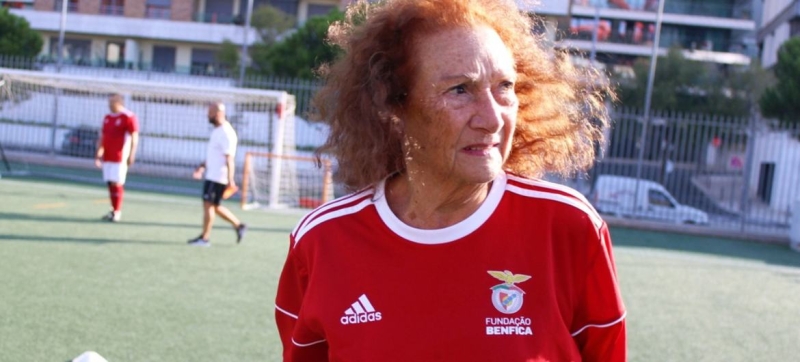
Foot football has a positive effect on the health of older people. What is foot football and how does it change the lives of older people Culture and education
Playing foot football helps older people lead an active lifestyle, strengthen their bodies and even maintain social connections, according to people in Portugal.
“We meet, greet each other, communicate, enjoy each other’s company, and then, after the game, sometimes we go out for lunch together. All this is very conducive to socialization, people feel like they are part of something,” says Jose. Since 2016, he has been attending walking football training sessions organized by the Benfica Foundation. The foundation was created by the football club of the same name.
Walking football, or as it is also called, “walking” football, is almost no different from regular football. The fundamental difference is that you can’t run during the game, only walk. This activity is designed mainly for older people or those recovering from illnesses or operations.
Jose has been involved in the project from the very beginning. He started playing walking football because it is good for your health. Sport helps protect the body from many non-communicable diseases – heart disease, cancer and diabetes.
WHO recommends that adults get at least 150-300 minutes of moderate-intensity physical activity a week, and walking football is a great way to stay fit and have fun at the same time.
Fernanda has been playing for her team for over six years. The physical activity helps her keep her diabetes under control. The game is also good for her mental health, she believes.
“My mental health has improved a lot. I just don’t think about the things that bother me. They just disappear for me,” she says.
Walking football has a very positive effect on people’s well-being. Players often report feeling less stressed, in a better mood, and feeling younger.
An inclusive and safe game
The Benfica Foundation notes that in walking football there is no division into male and female teams, with people of different genders and ages playing together. In addition, no special physical preparation is required to participate.
“In walking football, you cannot run, you can only walk. Physical contact and fighting for the ball are also not allowed. These rules make walking football safer than regular football, while maintaining the main benefits of physical activity. This makes the game attractive and accessible to people of all ages and fitness levels,” says Dr Kremlin Wickramasinghe, WHO Regional Advisor for Nutrition, Physical Activity and Obesity.
The Portuguese authorities are supporting the development of walking football, recognizing the potential of this sport to achieve public health goals. By investing in initiatives that support physical activity, governments have the opportunity to reduce health care costs, strengthen the economy, and create a better future for everyone.
Healthy and Active Ageing
The problem of population ageing is relevant all over the world, and walking football is a promising initiative to promote healthy and active ageing.
“Walking football is great for older people who are less physically active,” says Fernanda. “The game helps you make new friends, stay fit, and even travel. I told my friend from Angola that I play walking football, and he asked me to tell him more about the game – he also wanted to form a team!”
